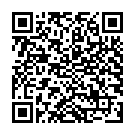|
|
|
| Module code: MST2.SE2 |
|
|
2V+3PA (5 hours per week) |
|
5 |
| Semester: 5 |
| Mandatory course: yes |
Language of instruction:
German |
Assessment:
Project work
[updated 06.11.2020]
|
MST2.SE2 (P231-0075) Mechatronics and Sensor Technology, Bachelor, ASPO 01.10.2019
, semester 5, mandatory course
MST2.SE2 (P231-0075) Mechatronics and Sensor Technology, Bachelor, ASPO 01.10.2020
, semester 5, mandatory course
UI-T-SE2 Environmental Technologies, Bachelor, ASPO 01.10.2021
, semester 7, mandatory course, technical
UI-T-SE2 Environmental Technologies, Bachelor, ASPO 01.10.2023
, semester 7, mandatory course, technical, course inactive since 22.09.2023
UI-T-SE2 Environmental Technologies, Bachelor, SO 01.10.2025
, semester 7, mandatory course, technical, course inactive since 22.09.2023
|
75 class hours (= 56.25 clock hours) over a 15-week period.
The total student study time is 150 hours (equivalent to 5 ECTS credits).
There are therefore 93.75 hours available for class preparation and follow-up work and exam preparation.
|
Recommended prerequisites (modules):
MST2.PH3 Physics 3
MST2.SE1
[updated 02.03.2021]
|
Recommended as prerequisite for:
MST2.SPR Mechatronics Project in English
[updated 12.04.2021]
|
Module coordinator:
Prof. Dr. Martin Löffler-Mang |
Lecturer:
Prof. Dr. Kai Haake
Prof. Dr. Martin Löffler-Mang
[updated 02.03.2021]
|
Learning outcomes:
This goal of this module is to establish a link to the real and practical applications of sensor technology. Students will create short presentations on the most important elements of optical sensor technology. During the course of the project, a sensor system will be built and tested in a given application.
After successfully completing this module, students will be able to combine elements to create more complex sensor systems. They will be able to independently develop, set up systems and carry out projects, if necessary in interdisciplinary teams with members of different study programs from the IngWi department.
After completing the course, students will be able to test a self-developed measurement system, use it in a defined application and use the measurement results obtained to optimize the system.
[updated 06.11.2020]
|
Module content:
The course focuses on optical sensor technology, but not exclusively. Sensor principles that were discussed in Sensor Technology 1 may also be of use in the project part of the course.
Module content in the lecture:
Optical mice, fiber optic sensors, spectrometers, particle measurement technology, flow measurement technology, chemical sensors, hydrauic sensors, IR measurement technology
The students´ short presentations will focus on the following elements: LED, laser, laser diode, photodiode, CCD sensor, photomultiplier, fiber optics, coupler, photoelectric sensors, triangulation.
[updated 06.11.2020]
|
Teaching methods/Media:
This course consists of an introductory lecture part, followed by short presentations by the students on given topics (see content), rounded off by more independent project work in teams.
[updated 06.11.2020]
|
Recommended or required reading:
Jansen: Optoelektronik. Vieweg
Eichler, Eichler: Laser. Springer
Young: Optik, Laser, Wellenleiter. Springer
Litfin: Technische Optik. Springer
Ruck: Lasermethoden in der Strömungsmesstechnik. at-Fachverlag
Löffler-Mang: Optische Sensoren. Vieweg + Teubner
Hering, Steinhart: Taschenbuch der Mechatronik. Fachbuchverlag Leipzig
Heimann, Gerth, Popp: Mechatronik. Hanser
Weichert, Wülker: Messtechnik und Messdatenerfassung. Oldenbourg
[updated 06.11.2020]
|


